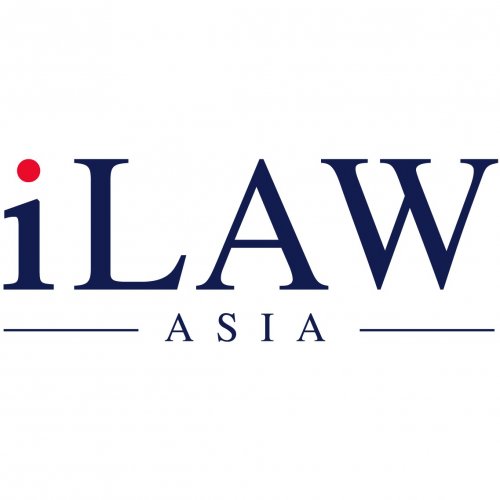Best Financial Services Regulation Lawyers in Yangon
Share your needs with us, get contacted by law firms.
Free. Takes 2 min.
List of the best lawyers in Yangon, Myanmar
About Financial Services Regulation Law in Yangon, Myanmar
Financial Services Regulation in Yangon, Myanmar, is governed by a combination of national laws and guidelines issued by regulatory bodies. The primary aim is to ensure the stability and integrity of the financial system, protect consumers, and promote transparent business practices. The Central Bank of Myanmar plays a pivotal role in supervising financial institutions, enforcing compliance, and guiding the evolution of financial services through various directives. This regulatory framework is crucial for fostering trust and stability in the financial markets and ensuring that financial entities operate within legal boundaries.
Why You May Need a Lawyer
Engaging a lawyer who specializes in Financial Services Regulation can be crucial in several situations:
- Starting a Financial Institution: Navigating the necessary approvals and licenses required to set up a bank or financial service company can be complex. Lawyers can help streamline this process.
- Compliance and Audits: Ensuring that your business complies with ongoing regulatory requirements and handling any audits by regulatory bodies.
- Dispute Resolution: Handling disputes with clients or regulatory bodies, ranging from contract disagreements to compliance penalties.
- Regulatory Changes: Advising on the impact of new laws or amendments to existing regulations on your business operations.
- Risk Management: Developing strategies to minimize legal and regulatory risks associated with financial transactions.
Local Laws Overview
The following are key aspects of local laws relevant to Financial Services Regulation in Yangon:
- Financial Institution Law: Governs the licensing, operations, and supervision of banks and non-bank financial institutions to ensure soundness and competitiveness.
- Central Bank of Myanmar Regulations: Sets the standards for monetary policy, reserves, liquidity requirements, and overall financial stability mandates.
- Securities and Exchange Law: Oversees the operation and regulation of capital markets and securities transactions to protect investors and ensure fair trading.
- Anti-Money Laundering Law: Mandates stringent checks and compliance requirements to prevent illegal financial activities, imposing severe penalties for breaches.
- Consumer Protection Laws: Aimed at safeguarding the rights of consumers engaged in financial transactions against fraud and unethical practices.
Frequently Asked Questions
1. What is the role of the Central Bank of Myanmar in financial regulation?
The Central Bank of Myanmar is responsible for regulating banks and financial institutions, ensuring financial stability, and implementing monetary policy within the country.
2. Do I need a license to operate a financial service in Yangon?
Yes, operating a financial service business requires obtaining the appropriate licenses from relevant authorities, which a lawyer can help navigate.
3. How does one ensure compliance with financial regulations in Myanmar?
Compliance can be ensured through regular audits, understanding current laws, training staff, and possibly consulting with a lawyer specializing in Financial Services Regulation.
4. What are the penalties for non-compliance with financial regulations?
Penalties range from fines to more severe sanctions such as license revocation or even criminal charges, depending on the severity of the breach.
5. How can businesses stay updated on new regulations?
Businesses should regularly consult legal advisors, attend regulatory briefings, and subscribe to updates from financial regulatory bodies.
6. What is involved in a regulatory audit by the Central Bank of Myanmar?
An audit typically involves a detailed review of the financial institution’s compliance with relevant laws, risk management practices, and overall financial health.
7. Are foreign investments in Myanmar’s financial services sector regulated?
Yes, foreign investments are subject to specific guidelines and limitations to ensure they align with national economic goals and policies.
8. What consumer protection measures are in place within financial services?
Consumer protection laws exist to safeguard consumers' rights, ensuring transparency and fairness in financial transactions.
9. Can disputes with financial institutions be taken to court?
Yes, disputes can be settled in court, but resolution through mediation or arbitration is often encouraged to expedite outcomes.
10. Are there training programs for understanding financial regulations?
Yes, various training providers and seminars offer courses in financial regulation, which can be particularly beneficial for professionals in the sector.
Additional Resources
For additional support and resources related to Financial Services Regulation in Yangon, consider reaching out to:
- Central Bank of Myanmar: The primary regulatory authority for monetary and financial policies.
- Myanmar Financial Services Association: Offers workshops and resources on compliance and regulatory updates.
- Myanmar Department of Investment and Company Administration (DICA): Helps with understanding investment regulations in the financial sector.
- Local Law Firms: Specialist financial service regulatory lawyers can provide tailored legal advice and support.
Next Steps
If you require legal assistance concerning Financial Services Regulation in Yangon, consider these steps:
- Identify Your Needs: Clarify why you need legal help and which areas of regulation are applicable to your situation.
- Consult a Specialist Lawyer: Engage a legal expert who specializes in Financial Services Regulation to guide you through the complexities.
- Gather Documentation: Compile all relevant documents, such as permits, compliance records, and financial statements, to facilitate legal consultations.
- Stay Proactive: Regularly update yourself on regulatory changes and seek continual legal advice to remain compliant.
Lawzana helps you find the best lawyers and law firms in Yangon through a curated and pre-screened list of qualified legal professionals. Our platform offers rankings and detailed profiles of attorneys and law firms, allowing you to compare based on practice areas, including Financial Services Regulation, experience, and client feedback.
Each profile includes a description of the firm's areas of practice, client reviews, team members and partners, year of establishment, spoken languages, office locations, contact information, social media presence, and any published articles or resources. Most firms on our platform speak English and are experienced in both local and international legal matters.
Get a quote from top-rated law firms in Yangon, Myanmar — quickly, securely, and without unnecessary hassle.
Disclaimer:
The information provided on this page is for general informational purposes only and does not constitute legal advice. While we strive to ensure the accuracy and relevance of the content, legal information may change over time, and interpretations of the law can vary. You should always consult with a qualified legal professional for advice specific to your situation.
We disclaim all liability for actions taken or not taken based on the content of this page. If you believe any information is incorrect or outdated, please contact us, and we will review and update it where appropriate.










